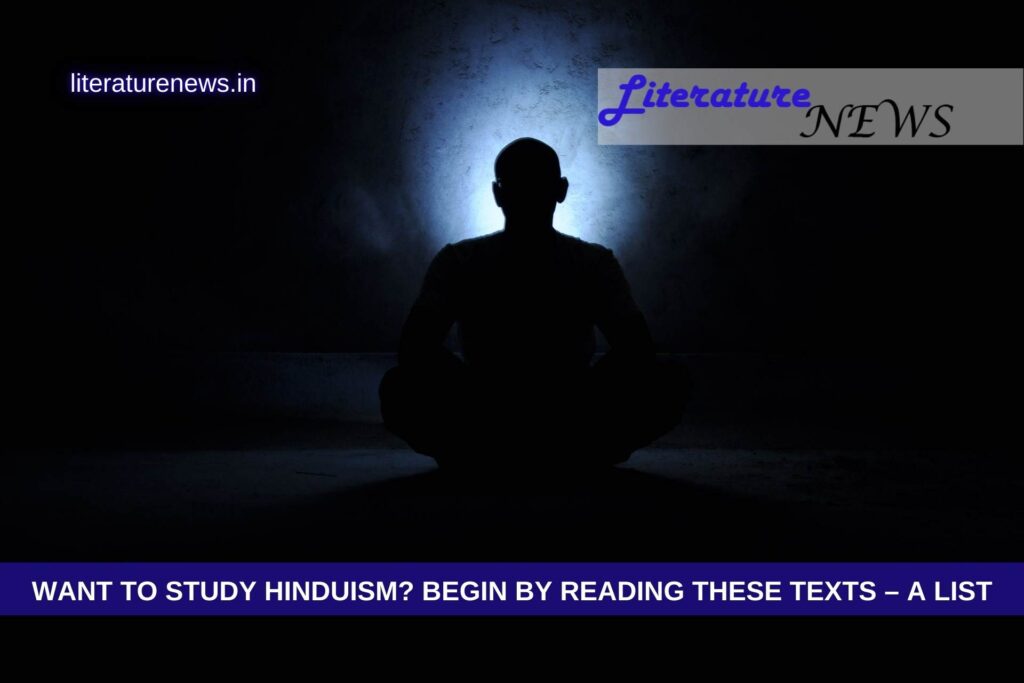Hinduism is one of the oldest religions in the world despite the debate about the origin of the word Hindu. Also known as Sanatana Dharma, Dharma that does not have any beginning or end, Hinduism is rich with culture, civilisation, history and also literature. There are many works of ancient Hindu literature the world recognises as sources of inspiration, enlightenment, knowledge and wisdom. And that’s why the ancient Hindu texts are an important part of Hinduism. These texts contain the teachings and beliefs of Hinduism, as well as its history and culture. If you are interested in learning more about Hinduism, Hindu philosophy and wisdom, I have prepared a list of the books you must read before you dive deeper. Here are the same:
- The Vedas: Known as the works without an author, the Vedas are a collection of sacred texts that are considered the oldest and most important texts in Hinduism. There are four Vedas: the Rig Veda, Sama Veda, Yajur Veda, and Atharva Veda. The Vedas contain hymns, rituals, and religious instructions, and they are considered the primary source of Hindu theology and philosophy. You can get these works in various forms – shortened, unabridged, original texts, translated and others. If you know Sanskrit, the most ancient language, reading or studying the Vedas will become more fruitful for you.
- The Upanishads: For those who cannot study or read the Vedas completely (the circle that includes many among us), they can read the Upanishads. To define it in the simplest terms, the Upanishads are a collection of philosophical texts that are considered an essential part of the Vedas. They contain the teachings and beliefs of Hinduism, including the concept of Brahman (the ultimate reality) and the cycle of reincarnation. The Upanishads have inspired many seers, sages, poets and intellectuals from time to time, within and beyond the borders of India. You can read the translations and commentary by Sri Aurobindo for the best experience.
- The Mahabharata: Written by sage Veda Vyasa, known worldwide for its multifacetedness, going by its form, the Mahabharata is an epic poem that is one of the longest and most important texts in Hinduism (and the world). Mainly famous because it contains vivid descriptions of war and feuds, the Mahabharata has become a go-to resource for anyone interested in writing, making movies, rewriting, or anything that’s remotely creative. It contains the story of a war between two branches of a royal family, the Pandavas and Kauravas, as well as teachings and moral lessons.
- The Ramayana: One of the most ancient works of literature, based on events observed by the author Maharshi Valmiki, The Ramayana is another epic poem that is an important text in Hinduism. Not only important, but it is also one of the texts that many revere and begin their days with. At the centre of this epic is the story of prince Rama and his wife Sita, and their hardships. The Ramayana contains descriptions of the perfect wife, perfect father, perfect king, perfect brother, perfect friend, and many other constants.
- The Bhagavad Gita: Philosophical, full of wisdom, practical, abstract, complex and yet the simplest discussions on life and its aspects, the world has seen many dedicated departments in the leading universities of the world to study (and teach) the Bhagavad Gita. In essence, the Bhagavad Gita is an extracted section of the Mahabharata that is considered one of the most important Hindu texts. A conversation narrative, it contains a conversation between the god Krishna and the warrior Arjuna, and it teaches about the importance of duty, self-control, and devotion to God.
Hinduism, as a religion, teaches the lessons of tolerance and co-existence. It also spreads the message of winning oneself rather than winning the world. There are many ancient texts that Hindus read, study and worship. The listed ones (above) are considered sacred by Hindus and are often studied and revered as sources of wisdom and guidance. They have also had a significant influence on Indian culture and have been widely translated and reviewed in other parts of the world. If you want to study and understand the philosophy and teachings of Hinduism, you may begin by reading these ancient works of literature. Once you fit in, you will be able to source and read further. These texts are known to increase your curiosity and search for wisdom.
By Manish for Literature News
